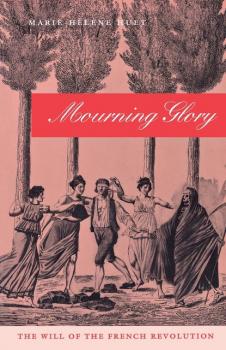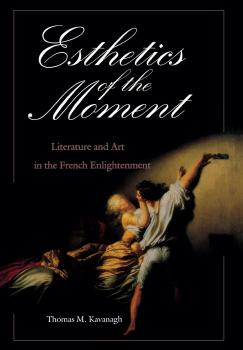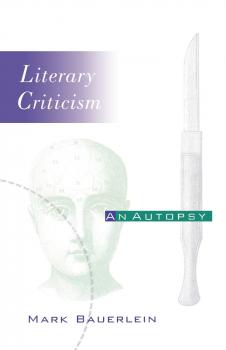Critical Authors and Issues
Скачать книги из серии Critical Authors and IssuesMourning Glory
Mourning Glory sheds light on troubled times as it shows how passion and prejudice, grief and denial all contributed to the continuing creation of a revolutionary legacy that still affects our understanding of the nature of language and history.
Romain Gary
In this book Ralph Schoolcraft explores the extraordinary career of the modern French author, film director, and diplomat—a romantic and tragic figure whose fictions extended well beyond his books. Born Roman Kacew, he overcame an impoverished boyhood to become a French Resistance hero and win the coveted Goncourt Prize under the pseudonym—and largely invented persona—Romain Gary. Although he published such acclaimed works as The Roots of Heaven and Promise at Dawn, the Gaullist traditions that he defended in the world of French letters fell from favor, and his critical fortunes suffered at the hands of a hostile press. Schoolcraft details Gary's frustrated struggle to evolve as a writer in the eye of a public that now considered him a known quantity. Identifying the daring strategies used by this mysterious character as he undertook an elaborate scheme to reach a new readership, Schoolcraft offers new insight into the dynamics of authorship and fame within the French literary institutions. In the early 1970s Gary made his departure from the conservative literary establishment, publishing works that boasted a quirky, elliptical style under a variety of pseudonymous personae, the most successful of which was that of an Algerian immigrant by the name of Emile Ajar. Moving behind the mask of his new creation, Gary was able to win critical and popular acclaim and a second Goncourt in 1975. But as Schoolcraft suggests, Gary may have «sold his shadow»—that is, lost his authorial persona—by marketing himself too effectively. Going so far as to recruit a cousin to stand in as the public face of this phantom author, Gary kept the secret of his true authorship until his violent death in 1980 from a self-inflicted gunshot wound. The press reacted with resentment over the scheme, and he was shunned into the ranks of literary oddities. Schoolcraft draws from archives of the several thousand documents related to Gary housed at the French publishing firms of Gallimard and Mercure de France, as well as the Butler Library at Columbia University. Exploring the depths of a story that has long remained shrouded in mystery, Romain Gary: The Man Who Sold His Shadow is as much a fascinating biographical sketch as it is a thought-provoking reflection on the assumptions made about identities in the public sphere.
Dice, Cards, Wheels
Gambling has been a practice central to many cultures throughout history. In Dice, Cards, Wheels , Thomas M. Kavanagh scrutinizes the changing face of the gambler in France over a period of eight centuries, using gambling and its representations in literature as a lens through which to observe French culture. Kavanagh argues that the way people gamble tells us something otherwise unrecognized about the values, conflicts, and cultures that define a period or class. To gamble is to enter a world traced out by the rules and protocols of the game the gambler plays. That world may be an alternative to the established order, but the shape and structure of the game reveal indirectly hidden tensions, fears, and prohibitions. Drawing on literature from the Middle Ages to the present, Kavanagh reconstructs the figure of the gambler and his evolving personae. He examines, among other examples, Bodel's dicing in a twelfth-century tavern for the conversion of the Muslim world; Pascal's post-Reformation redefinition of salvation as the gambler's prize; the aristocratic libertine's celebration of the bluff; and Balzac's, Barbey d'Aurevilly's, and Bourget's nineteenth-century revisions of the gambler. Dice, Cards, Wheels embraces the tremendous breadth of French history and emerges as a broad-ranging study of the different forms of gambling, from the dice games of the Middle Ages to the digital slot machines of the twenty-first century, and what those games tell us about French culture and history.
Optiques
Andrea Goulet takes the study of the novel into the realm of the visual by situating it in the context of nineteenth-century scientific and philosophical discourse about the nature of sight. She argues that French realism, detective fiction, science fiction, and literature of the fantastic from 1830 to 1910 reflected competition between two modern visual modes: a not-yet-outdated idealism and an empiricism that located truth in the body. More specifically, the book argues that key narrative forms of the nineteenth century were shaped by a set of scientific debates: between idealism and materialism in Honoré Balzac's Comédie humaine , between deduction and induction in early French detective fiction, and between objective vision and subjective vision in the «optogram» fictions of Jules Verne and others. Goulet aims to revise critical views on the modern novel in a number of ways. For instance, although many literary studies focus on the impact of cinema, photography, and painting, Optiques asserts the materialist bases of realism by establishing a genealogy of popular fictional genres as fundamentally optical, that is, as articulated according to bodily notions of sight. With its chronological and interdisciplinary scope, Optiques stands to contribute an important chapter to the study of literary modernity in its scientific context.







